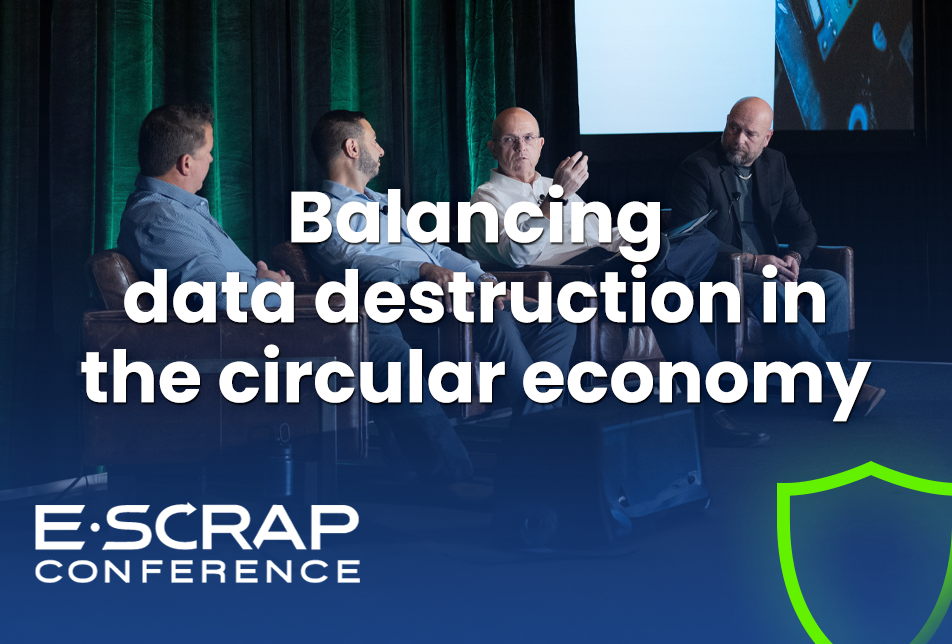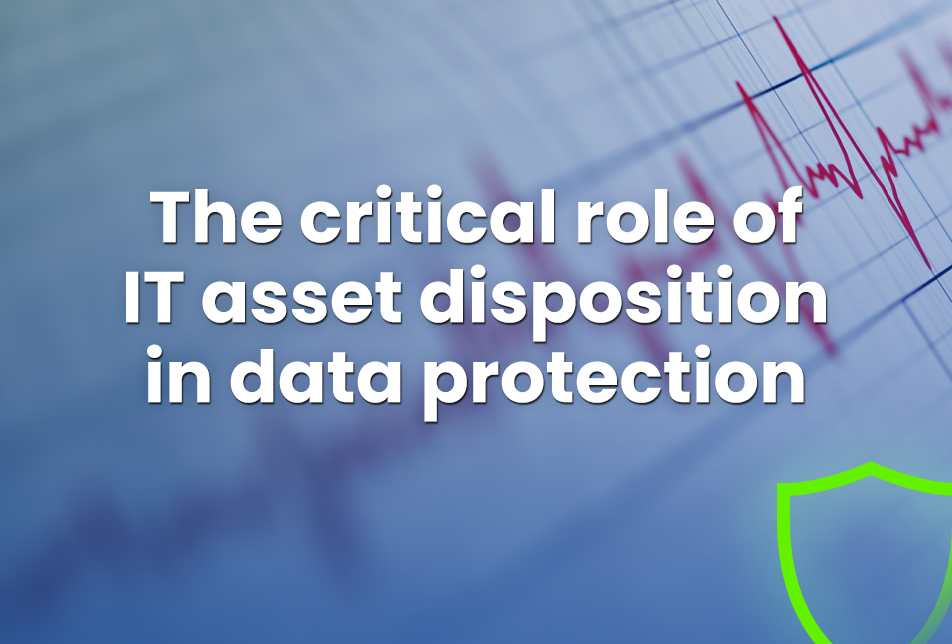At its core, the data destruction process is an intricate one. It is comprised of many moving parts to ensure that every job is done correctly and efficiently from logistics and asset tracking, to removal and destruction. However, one of the most important steps of the process here at Guardian Data Destruction is what happens afterthe data destruction. E-waste – you know, all those electronic products that suddenly become “trash”– must be disposed of properly or there are severe consequences not just for the environment, but also for peoples’ health.
In the United State alone, only 12.5 percent of e-waste is currently recycled. The Environmental Protection Agency (EPA) estimates as much as 60-million metric tons of e-waste makes it way to landfills every year. To make matters worse, e-waste is also the fastest growing municipal waste stream not just in this country, but worldwide. The problem is that most electronics (the bulk of which are not disposed of properly) contain some type of harmful material such as beryllium, cadmium, mercury, lead or all of the above. While the item might contain only a small amount of these elements, when added up, the threat to the environment is significant. Another shocking reality is that e-waste is often illegally exported by developed countries such as the United States and the United Kingdom, to developing ones such as China, India and Africa. In 2008, CBS News even shed light on this problem in an expose called, The Electronic Wasteland.
So what is the solution? While a problem of this magnitude never has an easy fix, there are some basic steps that can be followed to prevent the improper disposal of e-waste when choosing a data destruction company. Here are three suggestions:
(1) Meet in-person with a representative from the data destruction company you plan to use.
Setup a meeting with a representative from a few different data destruction companies and don’t be afraid to treat the meeting like an interview – remember, you’re paying for a very important service and you want to make sure the destruction AND the disposal of your data is done the right way. Guardian Data offers free, one-on-one consultations for just this reason. Request a free consult now.
(2) Choose a reputable data destruction company that follows EPA regulations.
While there are no federal regulations for the disposal of e-waste, the Environmental Protection Agency has created regulations and standards under a program they call “e-cyclying”. Guardian Data Destruction follows the EPA’s rules in order to ensure all e-waste is properly disposed of without negatively affecting the environment.
(3) Confirm that your data destruction company uses a non-landfill disposal program.
For example, Guardian Data Destruction has a national EPA-compliant, non-landfill recycling program. The “non-landfill” aspect of this process is extremely important. It’s our pledge that none of the e-waste we remove from your facility will end up overseas in a toxic environment.



